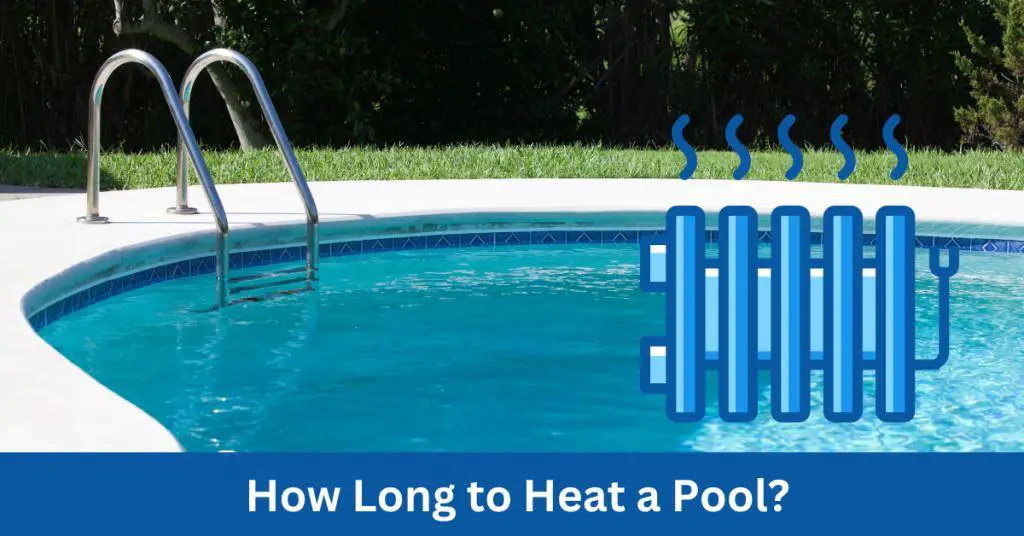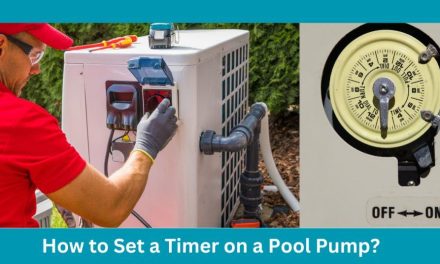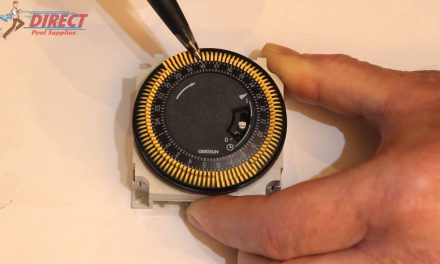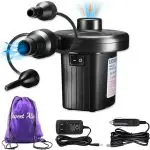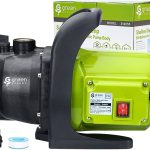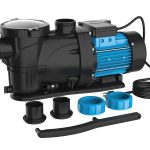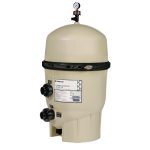To heat a pool, it can take anywhere from 8-48 hours to increase the temperature by 10-15 degrees Fahrenheit in an average-sized pool (around 15,000-20,000 gallons). Achieving this depends on factors such as the size of the pool, the type of heating system used (such as heat pumps or gas heaters), and the ambient temperature.
Heat pumps work by extracting heat from the air and transferring it to the pool water, while gas heaters use propane or natural gas to generate heat. It’s important to consider the efficiency and heating capacity of the chosen heating system to determine the estimated time it will take to heat your pool.
Heat Pump
A pool heat pump is an effective way to heat your pool, providing comfort and enjoyment all year round. This device works by extracting heat from the air and transferring it to the pool water. It operates by using a refrigerant, which circulates in a closed-loop system.
As the refrigerant passes through the outdoor evaporator coil, it absorbs heat from the surrounding air. This heat is then transferred to the pool water through the condenser coil. In this way, the heat pump raises the temperature of the pool water, making it comfortable for swimming even during colder months.
Although a pool heat pump may require a higher upfront cost compared to other heating options, it is worth it in terms of energy efficiency and cost-effectiveness in the long run. Additionally, some people opt to use their air conditioner to heat the pool in summer, but this may not be as effective or energy-efficient as a dedicated pool heat pump.
Gas Pool Heater
Gas pool heaters are an efficient way to heat your pool quickly and effectively. They work by using gas, usually propane or natural gas, to generate heat. These heaters have a combustion chamber and a heat exchanger, where the gas is burned to produce heat.
The heat is transferred to the pool water as it passes through the heat exchanger. There are different types of gas pool heaters available, including standard heaters and high-efficiency models. The size of the gas heater you should buy depends on the size of your pool and the desired temperature increase.
Generally, larger pools require bigger heaters. The cost of a gas pool heater can vary depending on the brand, size, and efficiency rating. In addition to the upfront cost, you should also consider the ongoing operational cost of running the heater.
Overall, a gas pool heater can be worth it if you want to heat your pool quickly and maintain a consistent temperature. However, it’s important to consider your specific pool size, budget, and heating needs before making a decision.
Pool Heater Options
Pool Heater Options include the Intex Above Ground Swimming Pool Heater, Bestway Pool Heater, AYCHLG Mini Swimming Pool Heater, Raypak 105,000 BTU Above Ground Heat Pump, Hayward Universal H-Series Heat Pump, Game Solarpro Curve Pool Heater, Hayward HeatPro 140K BTU Heat Pump, Raypak 140K BTU Heat Pump, Fibropool 70,000 BTU Electric Swimming Pool Heat Pump, Hayward HeatPro Above Ground Heat Pump, FibroPool Swimming Pool Heat Pump, XtremepowerUS 53,000 BTU In-Ground Pool Heat Pump, Pentair MasterTemp Pool Heater, Ruud 014820 Digital Above Ground Pool Heater, and Lochinvar ERN402 EnergyRite Natural Gas Pool Heater.
These options provide different heating solutions for various pool types. Each option has its advantages and features that cater to different pool heating needs. Whether you prefer an electric heat pump or a gas pool heater, there are plenty of options to choose from.
Consider factors like pool size, energy efficiency, and cost when selecting the right pool heater for your needs.
How Fast Can A Heat Pump Heat A Pool?
It can take anywhere from 8-48 hours to increase the temperature of an average size pool (around 15,000-20,000 gallons) by 10-15 degrees Fahrenheit. Turning on the heat pump is the first step in the process. After the pump has been running for about three hours, you can start seeing some results.
By the third hour, you should notice a noticeable increase in the pool’s temperature. However, keep in mind that operating a heat pump can come with an additional cost, so it’s essential to consider the potential increase in your energy bill.
If you’re looking for more information, there are informative YouTube videos available. Inyo Pools and Swim University both have videos explaining how heat pumps work and how long they take to heat a pool. Additionally, Swim University has a video discussing whether you should leave your pool heat pump running all the time.
Ultimately, the decision is up to you and your specific pool heating needs.
Frequently Asked Questions Of How Long To Heat A Pool?
How Long Does It Take To Heat A 20000 Gallon Pool?
It typically takes 8-48 hours to heat a 20,000-gallon pool by 10-15 degrees Fahrenheit.
How Long Does It Take To Heat A Pool 20 Degrees?
It can take anywhere from 8-48 hours to heat a 20,000-gallon pool by 20 degrees Fahrenheit.
How Long Should You Run Your Pool Heater?
On average, it takes 8-48 hours to increase the temperature of a 15,000-20,000-gallon pool by 10-15 degrees Fahrenheit.
Conclusion
The time it takes to heat a pool can vary depending on several factors such as pool size, desired temperature increase, and the type of heating system used. Typically, it can take anywhere from 8-48 hours to raise the temperature of an average-sized pool by 10-15 degrees Fahrenheit.
Heat pumps and gas pool heaters are popular options for efficiently heating pools, each with its own advantages and considerations. Heat pumps are energy-efficient and can be cost-effective, while gas heaters offer quicker heating but can be more expensive to operate.
Ultimately, the choice of heating system will depend on your specific needs, budget, and preferences. It’s important to consider factors such as climate, insulation, and pool cover usage to optimize heating efficiency and minimize energy consumption. Consulting with a professional can help you determine the best heating solution for your pool.

